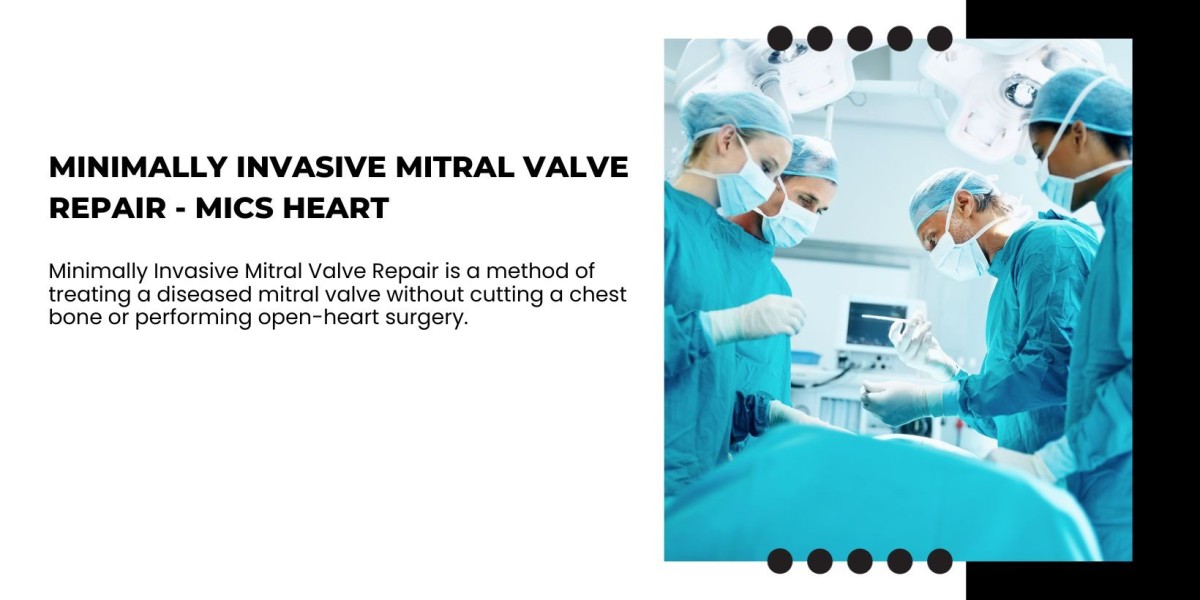Minimally Invasive Mitral Valve Repair, often abbreviated as MICS HEART, is a cutting-edge medical procedure that has revolutionized the treatment of mitral valve disorders. In this article, we will delve into the intricacies of MICS HEART, exploring its benefits, the surgical process, recovery, and why it represents a significant advancement in cardiac care.
Understanding the Mitral Valve
Before we dive into the details of Minimally Invasive Mitral Valve Repair, let's first understand the mitral valve's essential role in the human heart. The mitral valve is one of the heart's four valves, responsible for regulating blood flow between the left atrium and the left ventricle. Its proper functioning is vital for maintaining a healthy circulatory system.
The Need for Mitral Valve Repair
Mitral valve disorders can result from various factors, including congenital abnormalities, age-related degeneration, or infections. These conditions can lead to symptoms like shortness of breath, fatigue, and irregular heartbeat. If left untreated, they can significantly impact a person's quality of life and even become life-threatening.
Benefits of Minimally Invasive Mitral Valve Repair
1. Smaller Incisions, Faster Recovery
One of the primary advantages of MICS HEART is the minimally invasive approach it employs. Unlike traditional open-heart surgery, MICS HEART involves smaller incisions, reducing trauma to the chest and allowing for quicker recovery times. Patients can expect shorter hospital stays and a faster return to their normal activities.
2. Preservation of Healthy Tissue
In traditional mitral valve surgeries, the entire valve may be replaced, even if only a portion is damaged. MICS HEART, on the other hand, prioritizes the preservation of healthy valve tissue. This approach ensures that as much of the natural valve as possible is retained, promoting better long-term heart function.
3. Reduced Risk of Complications
The minimally invasive nature of MICS HEART translates to a lower risk of post-surgery complications. Patients are less likely to experience infections, excessive bleeding, or wound-related issues. This contributes to a safer and more comfortable recovery process.
The MICS HEART Procedure
Now, let's delve into the surgical process of Minimally Invasive Mitral Valve Repair:
1. Anesthesia and Incision
The surgery begins with the administration of anesthesia to ensure the patient's comfort throughout the procedure. A small incision is made on the right side of the chest, typically between the ribs.
2. Inserting the Surgical Instruments
Specialized surgical instruments and a tiny camera, known as a thoracoscope, are inserted through the incision. The camera provides a clear view of the mitral valve and surrounding structures.
3. Repairing the Mitral Valve
Using the images transmitted by the thoracoscope, the surgeon carefully repairs the damaged mitral valve. Techniques may include reshaping, resizing, or suturing the valve to restore proper function.
4. Closing the Incision
Once the repair is complete, the surgical instruments are removed, and the incision is closed with sutures or staples. No need for a large chest incision, resulting in minimal scarring.
Recovery and Postoperative Care
After Minimally Invasive Mitral Valve Repair, patients are closely monitored during their recovery. Here's what to expect during this crucial phase:
1. Hospital Stay
Most patients can expect to stay in the hospital for a few days following the procedure. This period allows medical professionals to monitor the healing process and ensure there are no complications.
2. Rehabilitation
Post-surgery, patients may undergo cardiac rehabilitation to gradually regain their strength and cardiovascular fitness. This supervised program plays a pivotal role in the overall recovery process.
3. Follow-Up Care
Regular follow-up appointments with the cardiac surgeon are essential to track the progress of the mitral valve repair. These appointments ensure that the patient's heart continues to function optimally.
Conclusion
Minimally Invasive Mitral Valve Repair, or MICS HEART, represents a remarkable advancement in cardiac surgery. Its minimally invasive approach, preservation of healthy tissue, and reduced risk of complications make it a highly attractive option for those suffering from mitral valve disorders. If you or a loved one is facing mitral valve issues, consider MICS HEART as a cutting-edge solution that prioritizes both your health and well-being.
Source:- https://www.micsheart.com/article/minimally-invasive-mitral-valve-repair/








